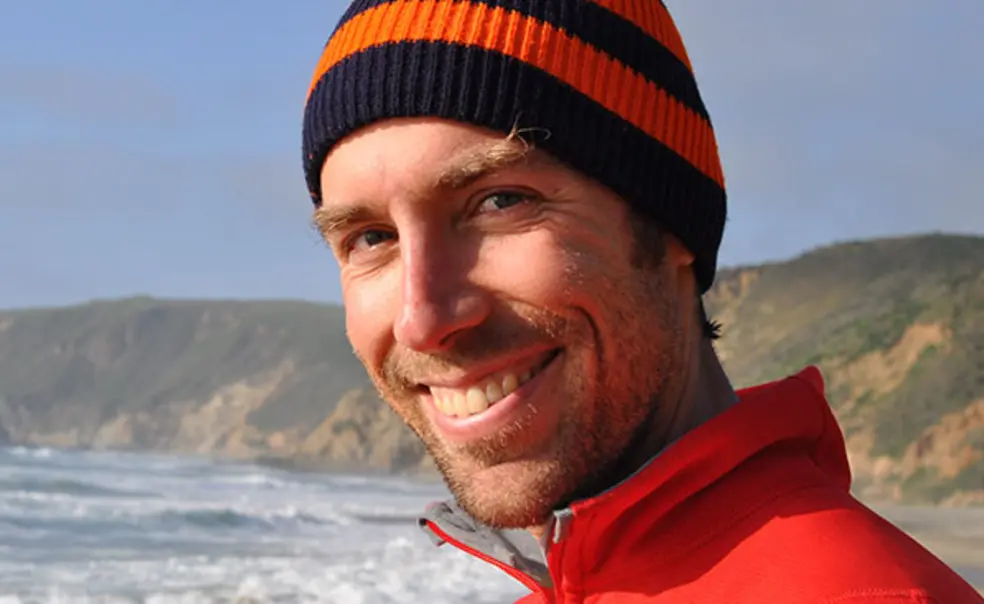Michael Kuntz ’99 Puts Finance Skills to Work for Farmers in the Serengeti
Michael Kuntz ’99 launched his post-Princeton career as many do: with little idea where his path would lead. He says his transition from account executive to social entrepreneur was the unexpected result of a leapfrogging career characterized by curiosity about the ways “solid financial skills” could reduce poverty.
As he charted his way through advertising, investor relations, actuarial consulting, and financial services, Kuntz became intrigued with microfinance. It presented an interesting problem set. First, could you manage the financial risks posed by high volume, high risk, low-dollar-amount transactions to maintain a viable business? Second, could you leverage the model to significantly improve incomes? In business school at the University of Virginia, Kuntz flirted with microfinance and microentrepreneurship, but his experiences convinced him that both approaches alone, while good at alleviating certain hardships, do not create significant economic growth. He returned to corporate finance at Raymond James, keeping one eye on the microfinance field.
Six years later, still intrigued by questions of supporting small businesses in developing countries, Kuntz walked away from his job with no clear game plan, but a conviction that to figure it out, he would simply have to start doing the work. Kuntz soon linked up with a sustainable forest project funded by Gates Foundation and IDEO.org, helping residents in the Peruvian Amazon develop income alternatives to logging and strip mining. This demonstrated a need for an ecosystem approach to include financing, mentorship, and market linkages. Kuntz then applied this approach as co-director of Nigerian-based incubator Generation Enterprise (GEN).
GEN sought to increase youth income through entrepreneurship training, but a market assessment suggested to Kuntz that most youth were entrepreneurs by default. They wanted and needed more stable, formal work opportunities, not better entrepreneurship skills. Kuntz helped GEN pilot management systems to train unskilled youth and create a positive return on investment for businesses. Their proof case, with ZEST Concierge Services, produced two cohorts of trainees delivering local-record levels of learning and performance. Additional companies are now lining up to adopt the system, inching Nigeria’s private sector towards profitably training a generation of unskilled youth.
Having successfully reorganized GEN, Kuntz fired himself to turn leadership over to local executives (he remains on the board). He sought another challenge and found it in Simusolar, a company providing off-grid solar equipment and financing for rural, smallholder farms and businesses in Tanzania. Simusolar’s model combines Kuntz’s diverse expertise in risk assessment, underwriting, microfinance, and local-market interventions.
Across Africa, approximately two of every three people remain without access to power. Given that the cost of connecting rural Africans to a power grid is between four and 10 times the cost of an off-grid solution, The Economist predicted in 2016 that the rate of off-grid connections would soon outstrip the pace of grid connections.
However, while off-grid technology continues to improve, the financial viability of the companies competing in this “bottom billion” market is much less clear. Companies “hold their financial cards very close to the vest,” says Kuntz. He also notes that to prove their effectiveness and viability, companies “need to scale asap, but they can’t rush it. Companies following an exponential growth model in East Africa got burned” — by non-performing loans and high acquisition and servicing costs, and also “by the steep learning curve, lack of infrastructure, and [a] high degree of legal and regulatory ambiguity.”
Kuntz is betting he can avoid this plight by focusing on smallholder businesses. Many economic interventions provide access to finance or energy or new technology. Simusolar does all three. Using microfinance techniques, it finances customers’ purchase of specialized equipment products (designed by Simusolar, with and for clients in key market sectors such as agriculture, poultry, fishing, and retail services) that work with Simusolar’s off-grid power solutions. Access to reliable equipment and energy can double or even quadruple profits, according to Kuntz. If this keeps up, a former ad-man just might have created an offer you can’t refuse.












No responses yet